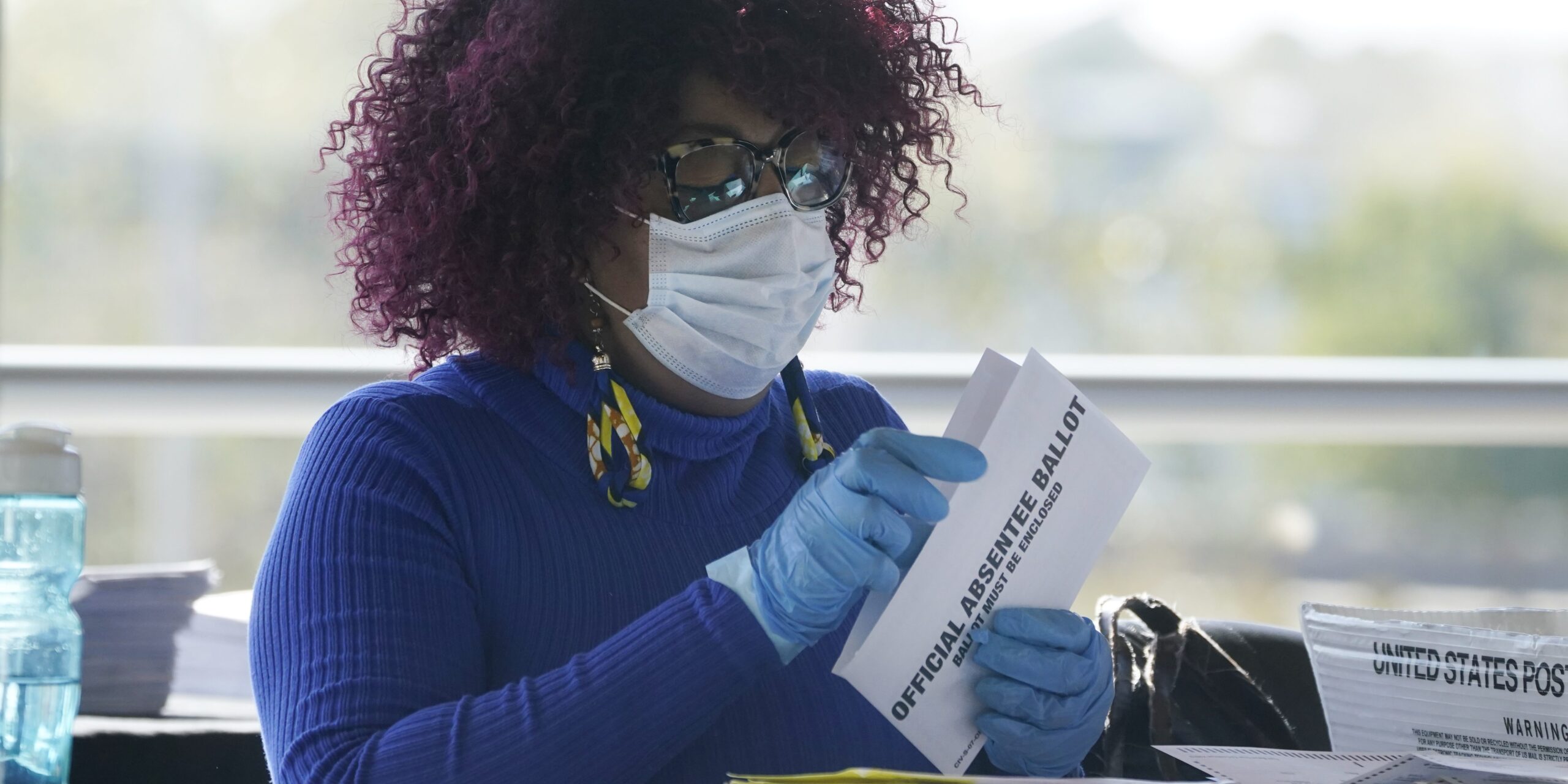This coverage is made possible through Votebeat, a nonpartisan reporting project covering local election integrity and voting access. The article is available for reprint under the terms of Votebeat’s republishing policy.
A new bill introduced in the Georgia Senate, if passed, would require voters to submit a copy of an approved form of photo identification when applying for and submitting an absentee ballot.
The bill filed by freshman state Sen. Jason Anavitarte, a Republican from Dallas, is the first measure introduced this session that would increase restrictions on absentee voting. Top Republican lawmakers have said they want to tighten security on the absentee process after Democrats’ record-breaking use of the method led to Republicans suffering major losses in November and January.
Anavitarte did not respond to requests for him to comment on his legislation.
If the law is passed, Georgians would have to scan and make a copy of their driver’s license, passport or another form of government-issued ID when they submit their ballot application, and again when they return the ballot itself.
The new law would replace the current signature-verification process, which received heavy criticism from former President Donald Trump and his supporters following the presidential election. Trump insisted the process was fraudulent despite repeated assurances from Georgia’s election officials that absentee voting is secure.
Multiple legislative hearings and federal court cases found no credible instances of voting irregularities that would call into question the results of the election.
An audit of the signature-verification process in Cobb County conducted by the secretary of state’s office and the Georgia Bureau of Investigation reportedly found two mistakes out of 15,000 ballots, and no cases of fraud. In their report, the GBI said the Cobb signature-match process was 99.9% accurate.
Democratic lawmakers and voting-rights groups have opposed any new restrictions on absentee voting because they say the process has been proven to be secure as is, and any added requirements would make it harder to vote.
“This was the most scrutinized election in Georgia history. Two recounts and an audit that included the Georgia Bureau of Investigation. If it ain’t broke, don’t fix it,” said Andrea Young, executive director of the ACLU of Georgia. “This bill limits ballot access for everyone without an electronic scanner/printer at home. This is wrong.”
“We know that voting by mail in Georgia is safe. We know that voting absentee in Georgia is safe. We know that it is secure,” said state Rep. Teri Anulewicz, D-Smyrna. “We know that there is absolutely no evidence of any fraud happening with absentee voting in Georgia.”
Anulewicz said that there is no problem that this bill would supposedly rectify, as there has been no proof of voter fraud. She said requiring a photo ID amounts to voter suppression because it would make it harder for everyone who wants to vote absentee, Democrat and Republican.
“The need for technology poses, what I consider to be, a very high barrier to entry,” said Anulewicz.
Requiring some additional form of identification is a step that has been supported by Gov. Brian Kemp, Secretary of State Brad Raffensperger, and the leaders of both chambers of Georgia’s General Assembly, all Republicans. Both Kemp and Raffensperger had to contend with attacks from Trump after it became clear Trump had lost in Georgia and blamed Georgia’s Republican leaders.
Proponents of a photo ID requirement argue that voters who cast their ballot in-person have to show identification, so they say the standard should be the same across the board for all voters.
Democrats in the General Assembly have introduced their own legislation as part of what they have said is a platform intended to expand voter access. The proposed laws include a bill in the Senate that would require an absentee ballot drop box at every advance-voting location, and a measure in the House that would provide for same-day voter registration.
There is a good chance Republicans will be able to put some form of identification requirement in place, given that Republicans control both chambers of the General Assembly and the support expressed by party leadership.









